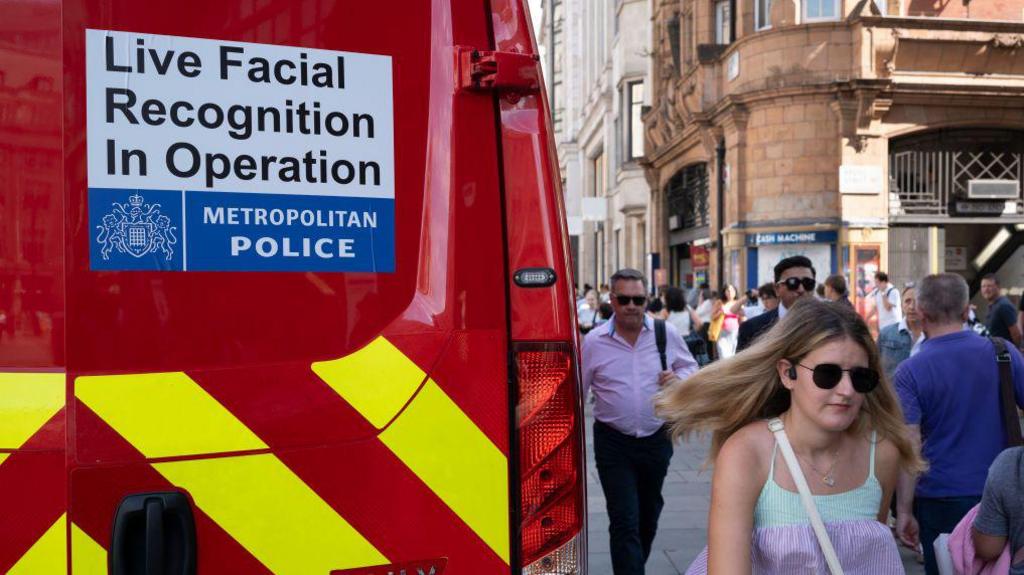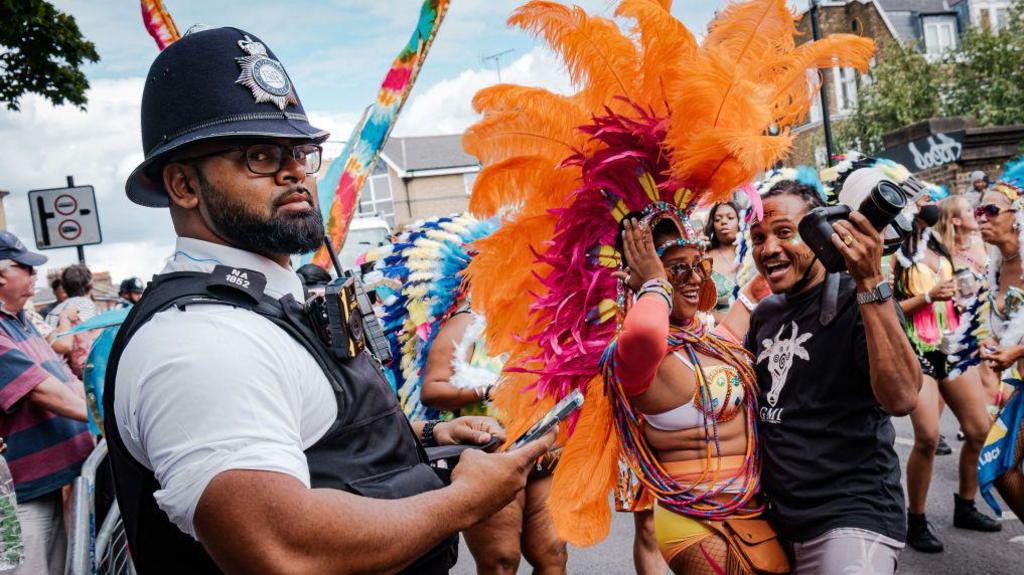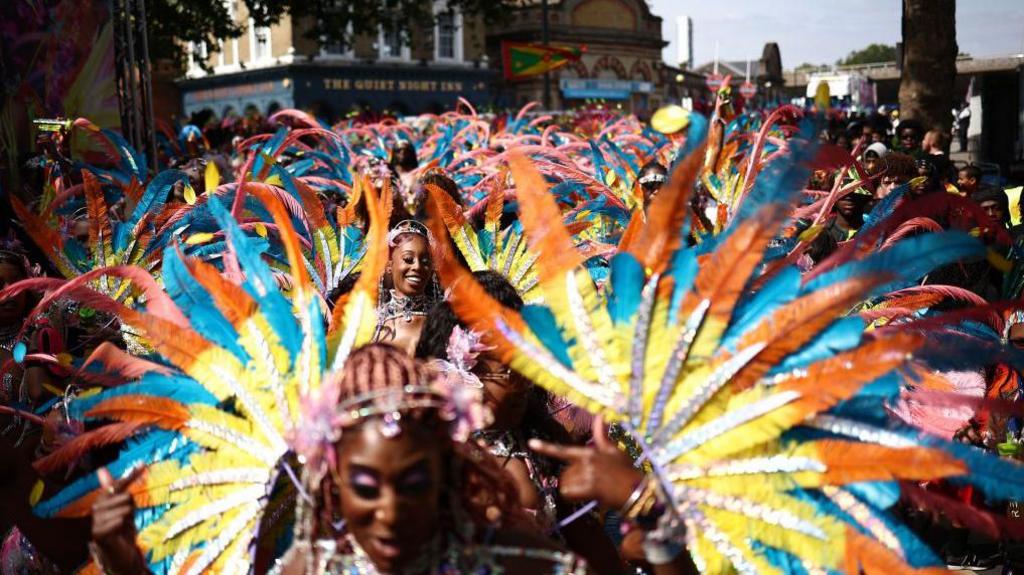Met urged to scrap Carnival facial recognition plan

The Met is one of two police forces in England and Wales to deploy LFR widely in recent years - this has now expanded
- Published
Civil liberty and anti-racism groups have called on the Metropolitan Police to drop plans to use live facial recognition (LFR) technology at this year's Notting Hill Carnival.
In a letter to Met Commissioner Sir Mark Rowley, 11 organisations described LFR as "a mass surveillance tool that treats all Carnival-goers as potential suspects and has no place at one of London's biggest cultural celebrations".
They said the decision to reintroduce the technology at Carnival was "deeply disappointing" and argued it could be "less accurate for women and people of colour".
The Met Police says LFR is accurate and balanced across ethnicity and gender, and insists it will help keep people safe.
The groups - which include Liberty, Big Brother Watch and the Runnymede Trust - highlighted an ongoing judicial review brought by Shaun Thompson, a black Londoner who says he was wrongly identified by the system and detained.
The letter states: "There is no clear legal basis for your force's use of LFR. No law mentions facial recognition technology and Parliament has never considered or scrutinised its use.
"Notting Hill Carnival is an event that specifically celebrates the British African Caribbean community, yet the [Metropolitan Police] is choosing to use a technology with a well-documented history of inaccurate outcomes and racial bias."

The Met says it will deploy 7,000 officers a day to police Carnival
The letter also raised concerns over a 2023 National Physical Laboratory study, external, which found the NeoFace system used by the Met was less accurate for women and people of colour depending on the algorithm that has been set.
The study's authors found the system could show bias at lower thresholds, though at the higher settings the Met says it uses, performance was found to be equitable across ethnicity and gender.
These thresholds are confidence levels the system uses to decide a match - lower ones flag more people but risk more mistakes and bias, while higher ones are stricter and more balanced.
Campaigners said there was no legal obligation for the force to avoid the lower thresholds, and argued policing resources would be better spent on safety measures at the carnival.
Deputy Assistant Commissioner Matt Ward, who is leading this year's policing operation at the carnival, said LFR had led to more than 1,000 arrests since the start of 2024 and that independent testing showed the system was "accurate and balanced with regard to ethnicity and gender" at the thresholds used by the Met.

Notting Hill Carnival can attract up to two million over the weekend
Notting Hill Carnival takes place next weekend and has previously attracted up to two million people.
It has come under increased scrutiny after two people were murdered at last year's event.
Facial recognition tech for Notting Hill Carnival
- Published18 July
'Cancelling Carnival won't stop knife crime'
- Published20 May
'City Hall should run Notting Hill Carnival'
- Published12 August
Mr Ward said the force had received the letter and would respond in due course.
"Carnival's growing popularity and size creates unique challenges. Around 7,000 officers and staff will be deployed each day," he said.
"Their priority is to keep people safe, including preventing serious violence, such as knife crime and violence against women and girls.
"It is right that we make the best use of available technology to support officers to do their job more effectively."
Mr Ward said the LFR cameras will be used on the approach to and from Carnival and not within the event boundaries.
He said they will "help officers identify and intercept those who pose a public safety risk before they get to the crowded streets".
BBC News has contacted the carnival's organisers for comment.
Listen to the best of BBC Radio London on Sounds and follow BBC London on Facebook, external, X, external and Instagram, external. Send your story ideas to hello.bbclondon@bbc.co.uk, external